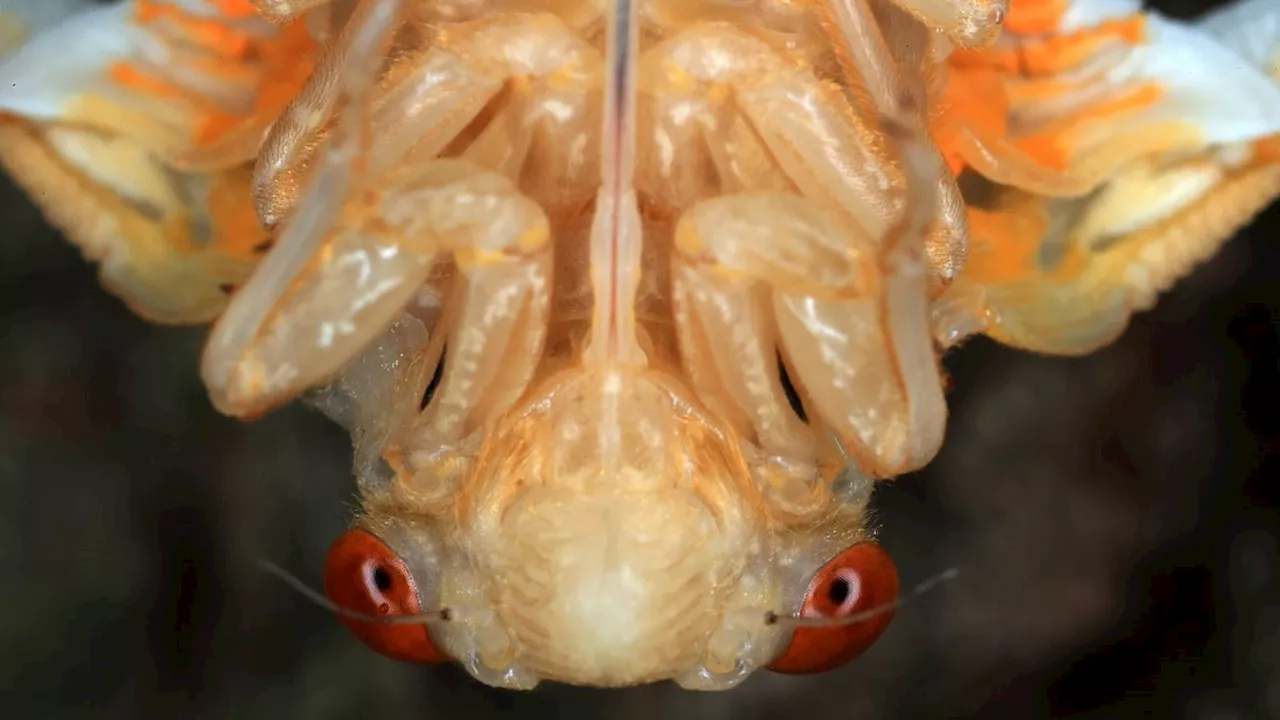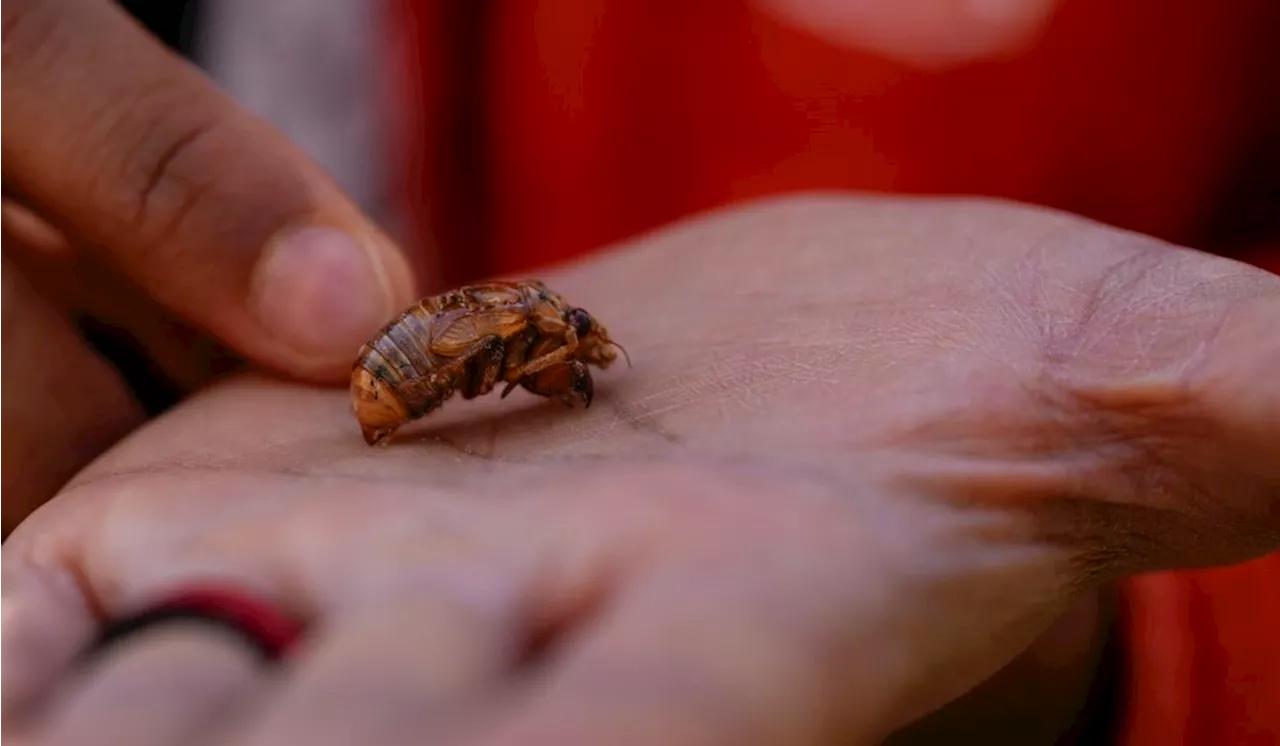The last time it happened, Thomas Jefferson was president. Later this month, two substantial broods of cicadas, known as Brood XIII and XIX, are set to come to the surface after spending 17 and 13 years, respectively, developing underground.
Georgia Institute of Technology biophysicist Saad Bhamla holds a periodical cicada nymph on the campus of Georgia Institute of Technology in Atlanta on Thursday, March 28, 2024. “We’ve got trillions of these amazing living organisms come out of the Earth, …The last time it happened, Thomas Jefferson was president. The next time it’ll happen is in 2244, when we still won’t have flying cars and a head of lettuce will cost $4,000.
“Billions, even trillions, of cicadas are going to emerge at the same time across 17 states,” Chris Simon, a professor in the Department of Ecology and Evolutionary Biology at the University of Connecticut, told Live Science. These insects’ lifecycle includes the nymphs nourishing on root sap beneath the soil until they are mature enough for reproduction. The mating spectacle is a noisy, hectic affair that may continue for several weeks.
During the initial days of the emergence, morning onlookers may notice the cicadas perched on plants after they molt their exoskeletons. The subsequent phase involves their ascent into trees, where the males attract partners with a high-pitched sound while females respond with clicking sounds that intensify amid mating activities.
United Kingdom Latest News, United Kingdom Headlines
Similar News:You can also read news stories similar to this one that we have collected from other news sources.
 10 Fascinating Facts About ‘Loon,’ the 221-Foot Superyacht That Gets the Coolest Toys FirstThe 221-footer has hundreds of thousands of social-media followers, accepts bitcoin for charter, and an entire crew who can sing and dance. Oh, and it’s rescued two other boats this year.
10 Fascinating Facts About ‘Loon,’ the 221-Foot Superyacht That Gets the Coolest Toys FirstThe 221-footer has hundreds of thousands of social-media followers, accepts bitcoin for charter, and an entire crew who can sing and dance. Oh, and it’s rescued two other boats this year.
Read more »
 Pushing back the limits of optical imaging by processing trillions of frames per secondPushing for a higher speed isn't just for athletes. Researchers, too, can achieve such feats with their discoveries. A new device called SCARF (for swept-coded aperture real-time femtophotography) can capture transient absorption in a semiconductor and ultrafast demagnetization of a metal alloy.
Pushing back the limits of optical imaging by processing trillions of frames per secondPushing for a higher speed isn't just for athletes. Researchers, too, can achieve such feats with their discoveries. A new device called SCARF (for swept-coded aperture real-time femtophotography) can capture transient absorption in a semiconductor and ultrafast demagnetization of a metal alloy.
Read more »
 Pushing back the limits of optical imaging by processing trillions of frames per secondPushing for a higher speed isn't just for athletes. Researchers, too, can achieve such feats with their discoveries. This is the case for Jinyang Liang, Professor at the Institut national de la recherche scientifique (INRS), and his team, whose research results have recently been published in Nature Communications.
Pushing back the limits of optical imaging by processing trillions of frames per secondPushing for a higher speed isn't just for athletes. Researchers, too, can achieve such feats with their discoveries. This is the case for Jinyang Liang, Professor at the Institut national de la recherche scientifique (INRS), and his team, whose research results have recently been published in Nature Communications.
Read more »
Tokenized movement will be worth trillions — Sweat Economy co-founderSweatcoin and Sweat Economy co-founder Oleg Fomenko believes that one day, people’s employers will pay them crypto to live an active lifestyle.
Read more »
 Trillions of gallons leak from aging drinking water systems, further stressing shrinking US citiesTrillions of gallons are lost from aging drinking water systems across the U.S. after decades of deferred maintenance and disinvestment.
Trillions of gallons leak from aging drinking water systems, further stressing shrinking US citiesTrillions of gallons are lost from aging drinking water systems across the U.S. after decades of deferred maintenance and disinvestment.
Read more »
 Cicada double brood event: What to expect when trillions of bugs emerge in Eastern USCarys Matthews is a freelance writer for Live Science and has a passion for the natural world. Most recently the group digital editor of BBC Wildlife and BBC Countryfile Magazine, she writes about the outdoors, nature and health and fitness. Prior to this she has worked for a number of sports and environmental titles in the U.K.
Cicada double brood event: What to expect when trillions of bugs emerge in Eastern USCarys Matthews is a freelance writer for Live Science and has a passion for the natural world. Most recently the group digital editor of BBC Wildlife and BBC Countryfile Magazine, she writes about the outdoors, nature and health and fitness. Prior to this she has worked for a number of sports and environmental titles in the U.K.
Read more »
